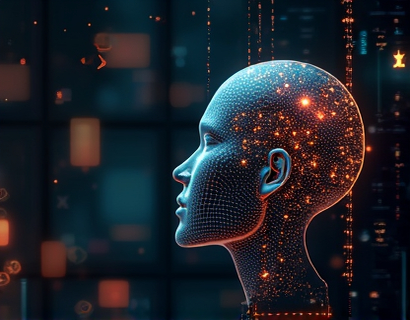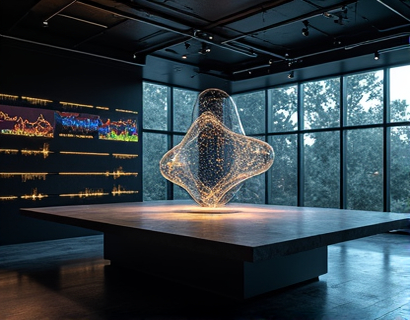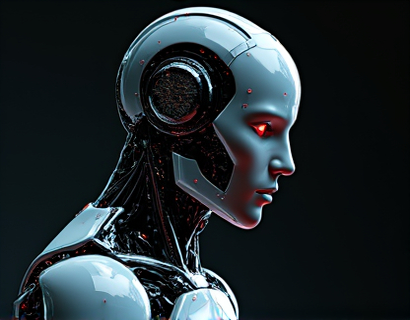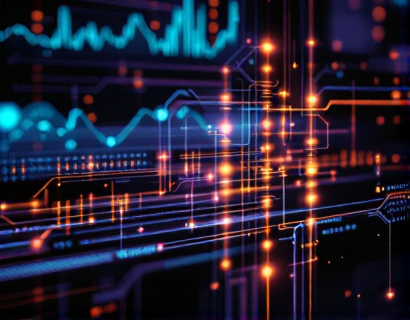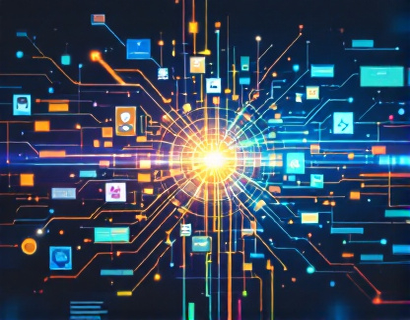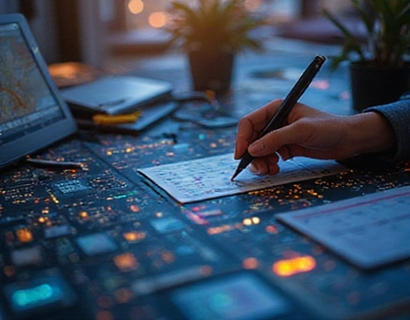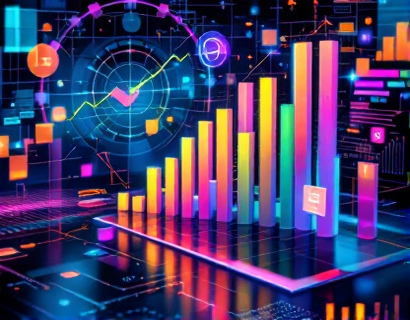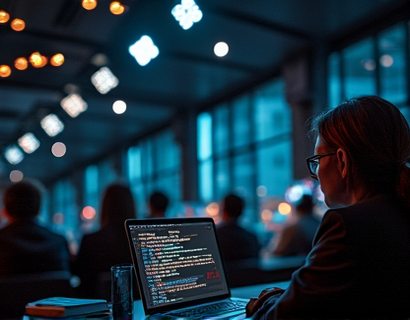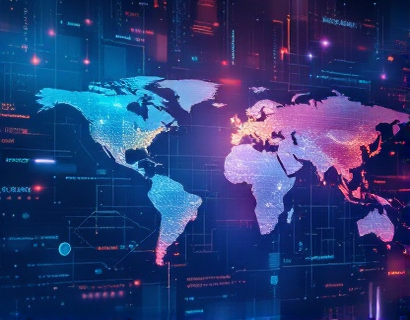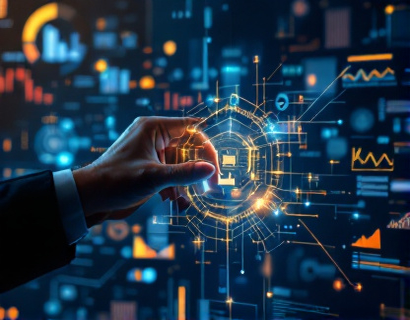Unlocking Next-Gen Productivity: The Synergy of Crypto and AI
The digital age has ushered in a revolution in productivity tools, with cryptocurrency and artificial intelligence (AI) at the forefront of this transformation. The convergence of these two technologies is creating innovative solutions that streamline tasks, enhance efficiency, and open new avenues for tech enthusiasts and digital visionaries. This article delves into the powerful synergy between crypto and AI, exploring how these technologies are reshaping the landscape of digital productivity.
The integration of cryptocurrency and AI is not just a technological curiosity but a practical approach to solving complex problems. Cryptocurrency, with its decentralized and secure nature, provides a robust foundation for building trust and transparency in digital transactions. AI, on the other hand, brings the power of machine learning and data analysis to the table, enabling systems to learn from data, adapt to new inputs, and perform tasks that traditionally required human intervention.
Enhancing Task Automation
One of the most significant impacts of AI in the context of cryptocurrency is the automation of tasks related to trading, management, and security. Smart contracts, powered by blockchain technology, are self-executing contracts with the terms directly written into code. These contracts can automatically trigger actions based on predefined conditions, reducing the need for intermediaries and minimizing human error. For instance, a smart contract can automatically execute a trade when certain market conditions are met, ensuring that the transaction is completed swiftly and securely.
AI-driven bots can further enhance this automation by monitoring market conditions in real-time, analyzing vast amounts of data, and making informed decisions. These bots can execute trades, manage portfolios, and even provide investment advice, all with a level of precision and speed that surpasses human capabilities. For tech leaders and digital visionaries, this means a significant reduction in manual workload and an increase in the accuracy and consistency of their trading strategies.
Improving Security and Trust
Security is a paramount concern in the world of cryptocurrency. The decentralized nature of blockchain technology inherently provides a high level of security, but AI can take this to the next level. AI algorithms can detect anomalies and patterns that indicate potential security threats, such as fraudulent transactions or unauthorized access. By continuously monitoring network activity and learning from past incidents, AI can proactively identify and mitigate risks, ensuring the integrity of the system.
Moreover, AI can enhance the user experience by providing personalized security measures. For example, AI-driven authentication systems can use biometric data and behavioral patterns to verify user identities, adding an extra layer of security. This not only protects users' assets but also builds trust in the cryptocurrency ecosystem, encouraging more individuals and businesses to adopt these technologies.
Optimizing Resource Management
The computational power required for blockchain networks and AI models is substantial, and efficient resource management is crucial. AI can optimize the use of computational resources by predicting demand, balancing loads, and adjusting energy consumption. For instance, AI can dynamically allocate resources based on the current workload, ensuring that energy is used efficiently and costs are minimized. This is particularly important for mining operations, where energy consumption is a significant expense.
Additionally, AI can help in the development of more energy-efficient consensus mechanisms. Proof of Work (PoW), the traditional consensus mechanism used by Bitcoin, is energy-intensive. AI can assist in designing and implementing alternative mechanisms, such as Proof of Stake (PoS) or Proof of Authority (PoA), which are less resource-intensive while maintaining security and decentralization.
Enhancing Data Analysis and Insights
Data is the lifeblood of AI, and the cryptocurrency market generates an enormous amount of data. AI algorithms can process and analyze this data to provide valuable insights into market trends, investor behavior, and risk factors. For tech enthusiasts, this means access to sophisticated tools that can help in making informed decisions. AI-driven analytics can identify patterns and correlations that are not immediately apparent, enabling users to spot opportunities and avoid pitfalls.
Furthermore, AI can integrate data from various sources, including social media, news feeds, and economic indicators, to provide a comprehensive view of the market. This holistic approach to data analysis can give users a competitive edge, allowing them to stay ahead of the curve in a rapidly evolving landscape.
Personalized User Experiences
The combination of cryptocurrency and AI also opens up new possibilities for personalized user experiences. AI can analyze user behavior and preferences to tailor the interface and features of applications to individual needs. For example, a cryptocurrency trading platform can use AI to recommend strategies based on a user's trading history and risk tolerance, providing a more intuitive and user-friendly experience.
Personalization extends to customer support as well. AI-powered chatbots can offer real-time assistance, answering queries and guiding users through complex processes. These chatbots can learn from interactions, improving their responses over time and ensuring that users receive the help they need quickly and efficiently.
Fostering Innovation and Collaboration
The synergy between cryptocurrency and AI is not only about individual tools and applications but also about fostering a collaborative ecosystem. Platforms that leverage these technologies can bring together developers, researchers, and users to innovate and share knowledge. Open-source projects and community-driven initiatives are becoming increasingly common, allowing for rapid prototyping and widespread adoption of new ideas.
For tech leaders and digital visionaries, this ecosystem provides a fertile ground for experimentation and collaboration. By contributing to open-source projects or participating in hackathons, individuals can push the boundaries of what is possible and drive the industry forward. The decentralized nature of these platforms ensures that innovation is not confined to a single entity but is a collective effort, leading to more robust and versatile solutions.
Challenges and Considerations
While the potential of combining cryptocurrency and AI is vast, there are challenges that need to be addressed. One of the primary concerns is regulatory compliance. The cryptocurrency space is still navigating a complex web of regulations, and AI-driven solutions must adhere to these rules to operate legally. Staying informed about regulatory changes and ensuring compliance is essential for any organization or individual working in this field.
Another challenge is the technical complexity involved in integrating AI with blockchain technology. Developing robust and scalable systems requires expertise in both domains, and there is a need for skilled professionals who can bridge the gap between these technologies. Education and training programs can play a crucial role in addressing this shortage and fostering a new generation of tech experts.
Future Prospects
Looking ahead, the integration of cryptocurrency and AI is poised to revolutionize not only the financial sector but also various other industries. In finance, AI-driven trading algorithms and secure transaction systems can transform how businesses operate. In healthcare, AI can analyze medical data stored on blockchain to improve diagnostics and treatment plans. In supply chain management, AI can ensure transparency and traceability, while blockchain can secure transactions and reduce fraud.
The potential for innovation is limitless, and the synergy between cryptocurrency and AI will continue to drive advancements in productivity and efficiency. As these technologies mature and become more accessible, we can expect to see even more groundbreaking applications that redefine the digital landscape.
For tech enthusiasts and digital visionaries, the future is bright. By embracing the power of cryptocurrency and AI, they can unlock new possibilities, streamline their workflows, and contribute to a more efficient and secure digital world.





